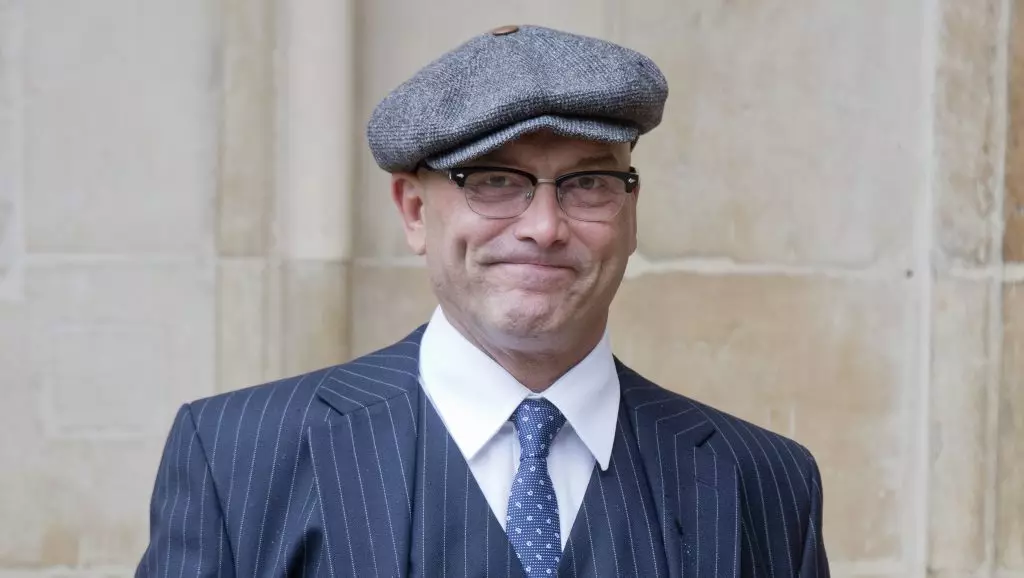In recent months, Gregg Wallace, a beloved television chef and MasterChef judge, has found himself at the center of intense scrutiny and controversy. While audiences have long admired his warm personality and culinary expertise, behind the scenes lies a complex web of personal struggles, allegations, and institutional responses. This situation exemplifies the often overlooked challenges that public figures face, especially when their personal health and past behaviors intersect with their careers. It raises vital questions: how should society reconcile the human complexities of personalities we once perceived as untouchable icons? And what does Wallace’s experience reveal about the importance of mental health support and fair accountability in high-stakes environments?
Wallace’s recent ordeal underscores the devastating impact that allegations and public accusations can have on an individual’s mental well-being. The fact that a welfare specialist was hired to support him for seven months highlights the weight of emotional distress involved. This was not merely a matter of reputation management but a reflection of the understanding that acknowledgment of mental health and personal safety is crucial, especially when facing relentless public and media pressure. Wallace’s own admission of contemplating suicide illustrates the severe toll that such crises can take, demanding a human-centered approach rather than simple condemnation or dismissal.
Critics, however, might wonder whether the measures taken for Wallace—like assigning a dedicated welfare coach—are enough or merely superficial gestures within a larger institutional framework. If we look at the broader context, industry giants like Banijay and organizations like the BBC seem to prioritize safeguarding their reputation over addressing underlying systemic issues, including workplace culture and personal vulnerabilities of staff and celebrities alike. This raises questions about whether such support is genuine or a strategic move to contain fallout. Is it sufficient to merely “support” in times of crisis without meaningful structural change?
The Role of Accountability and Fair Investigation
The investigation conducted by Lewis Silkin represents an essential step towards transparency, yet it is insufficient without a broader conversation about the nature of justice and due process. Wallace’s side claims that many of the more serious allegations—such as inappropriate touching—have been dismissed, but the existence of multiple incidents dating back years suggests a pattern that cannot be dismissed lightly. The decision by the BBC to sever ties with Wallace indicates that institutions are prioritizing perceived safety and reputation, yet it also begs the question: is this enough? Or does it risk preemptively punishing individuals without a complete understanding of their circumstances?
Wallace’s assertion that his conduct was influenced by a recent autism diagnosis adds another layer of complexity. Neurodiversity specialists have highlighted his hypersensitivity and social boundary uncertainties, suggesting that his behavior may be rooted in genuine neurological differences. If true, this raises important societal questions: are we sufficiently accommodating neurodiverse individuals in professional settings? Do workplaces and entertainment industries do enough to understand and support such conditions? Ignoring or dismissing these factors risks marginalizing a vulnerable population further and ignoring the nuances that shape human behavior.
Furthermore, Wallace’s claims of discrimination—particularly his assertion that he’s being targeted because of his disabilities—highlight the importance of genuine inclusivity and understanding. It’s crucial to differentiate between behavior that genuinely harms others and actions that may be misinterpreted or influenced by medical conditions. Society must be vigilant in ensuring that accountability measures are fair, evidence-based, and respectful of individual differences.
The Broader Implications for Industry Culture and Personal Responsibility
This case also prompts reflection on the overarching culture within the entertainment industry and workplace environments where power dynamics often obscure accountability. High-profile figures like Wallace are often protected by their fame, but the reality is that no one is immune to the consequences of their actions or the impact of mental and physical health challenges. Ensuring a safe, supportive environment requires more than just reactive investigations; it demands proactive efforts to foster understanding, open dialogue, and ongoing support systems.
Additionally, critics might argue that the apparent focus on Wallace’s mental health and neurodiversity could be used as a deflection from addressing actual misconduct. While compassion is vital, it must not overshadow the imperative to hold individuals accountable for their actions. The balance between empathy and responsibility is delicate but essential to ensuring justice and genuine safety.
The controversy surrounding Wallace ultimately reflects broader societal dilemmas: how do we treat those with mental health and neurological differences? How do we ensure workplace accountability without stigmatizing individuals? And most importantly, how do we create environments where human vulnerabilities are acknowledged and supported rather than exploited or ignored? These questions challenge us to reconsider not only how we view public figures but how society as a whole values mental health and human dignity amid controversy and scrutiny.
